Key Points Summary
· The trend of corporate Bitcoin investment is expanding: After the SEC approved Bitcoin spot ETFs, corporate investment strategies are gradually warming up. This trend is not limited to Western markets and is extending to Asian regions.
· Why companies choose Bitcoin: Bitcoin has shown enormous appeal in asset diversification, improving fund management efficiency, and enhancing corporate value.
· Participation and development prospects in the Asian market: Asian companies' investment in Bitcoin is still in its early stages, but successful cases like Metaplanet indicate huge market expansion potential. However, regulatory uncertainty and lack of institutional support remain major obstacles.
1. Introduction
This year, the SEC approved Bitcoin spot ETFs. This move became a milestone event for crypto assets towards institutionalization. Since then, more and more companies have begun to incorporate Bitcoin into their investment strategies. For example, MicroStrategy has made Bitcoin one of its key financial assets. This trend is rapidly expanding from Western to Asian markets, gradually becoming a global phenomenon. This article will analyze the main strategies driving corporate Bitcoin adoption and the influencing factors behind it.
2. The Bitcoin Investment Boom among Corporations
As Bitcoin's value becomes increasingly recognized, its attractiveness continues to grow. At the national level, some governments have begun discussing Bitcoin investment. For instance, El Salvador has taken proactive steps, continuously purchasing Bitcoin. In the US, discussions about the potential president Trump's plan to reserve Bitcoin have been a focal point. Additionally, Poland and Suriname are exploring the possibility of Bitcoin as a strategic asset.
However, apart from El Salvador, most countries' Bitcoin investments remain at the stage of policy discussions or campaign promises, far from actual implementation. The US currently has not directly invested in Bitcoin but holds some to recover criminal proceeds. Moreover, due to Bitcoin's significant price volatility, many countries' central banks still prefer gold as a more stable reserve asset.
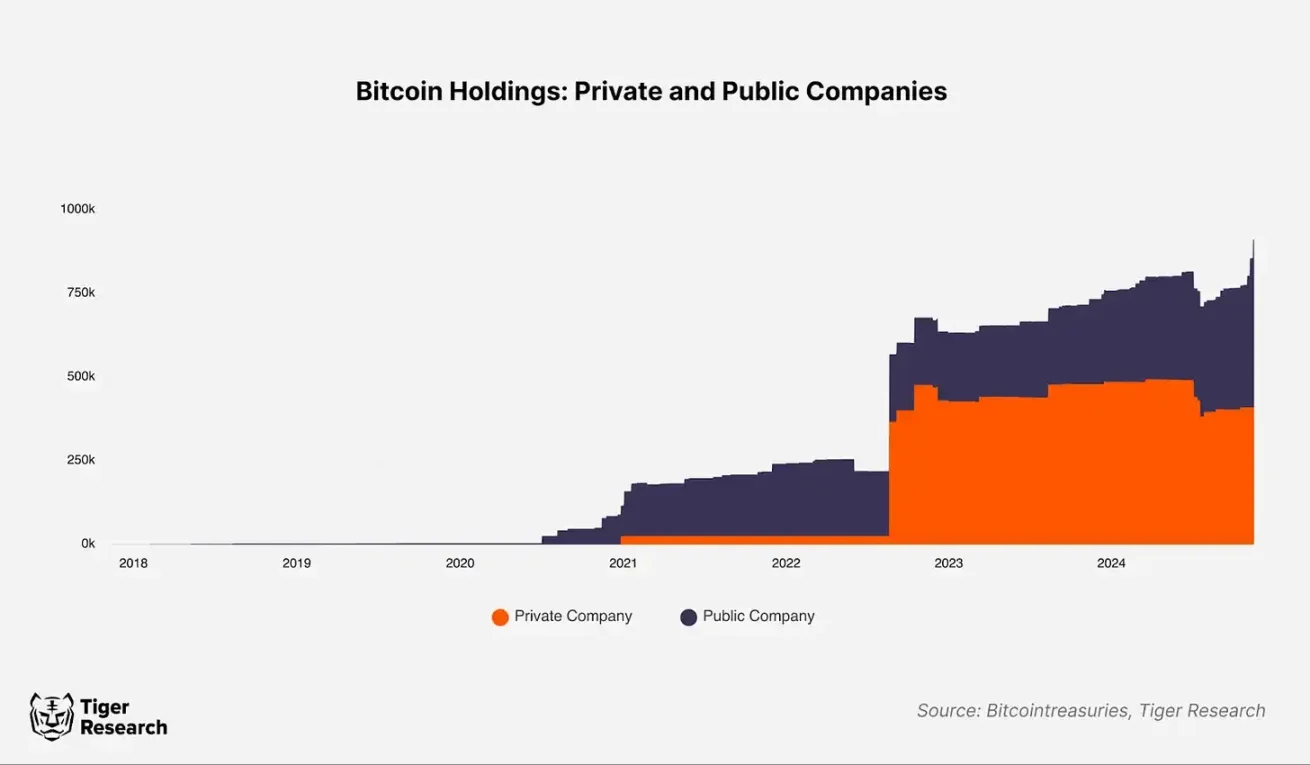
Government progress on Bitcoin is slow and limited, but corporate participation is accelerating. Companies like MicroStrategy, Semler Scientific, and Tesla have made bold investments in Bitcoin, in stark contrast to most governments' cautious attitudes.
3. Three Major Reasons Companies Focus on Bitcoin
Investing in Bitcoin is no longer just a trend; it is gradually becoming a core financial strategy for companies. Bitcoin attracts companies due to its unique characteristics, with its value primarily manifesting in the following three aspects:
3.1. Achieving Asset Diversification
Traditionally, corporate financial assets are typically configured around stable options like cash and government bonds. These assets can ensure liquidity and help mitigate risks, but their returns are low, often struggling to outpace inflation, potentially leading to a reduction in actual asset value.
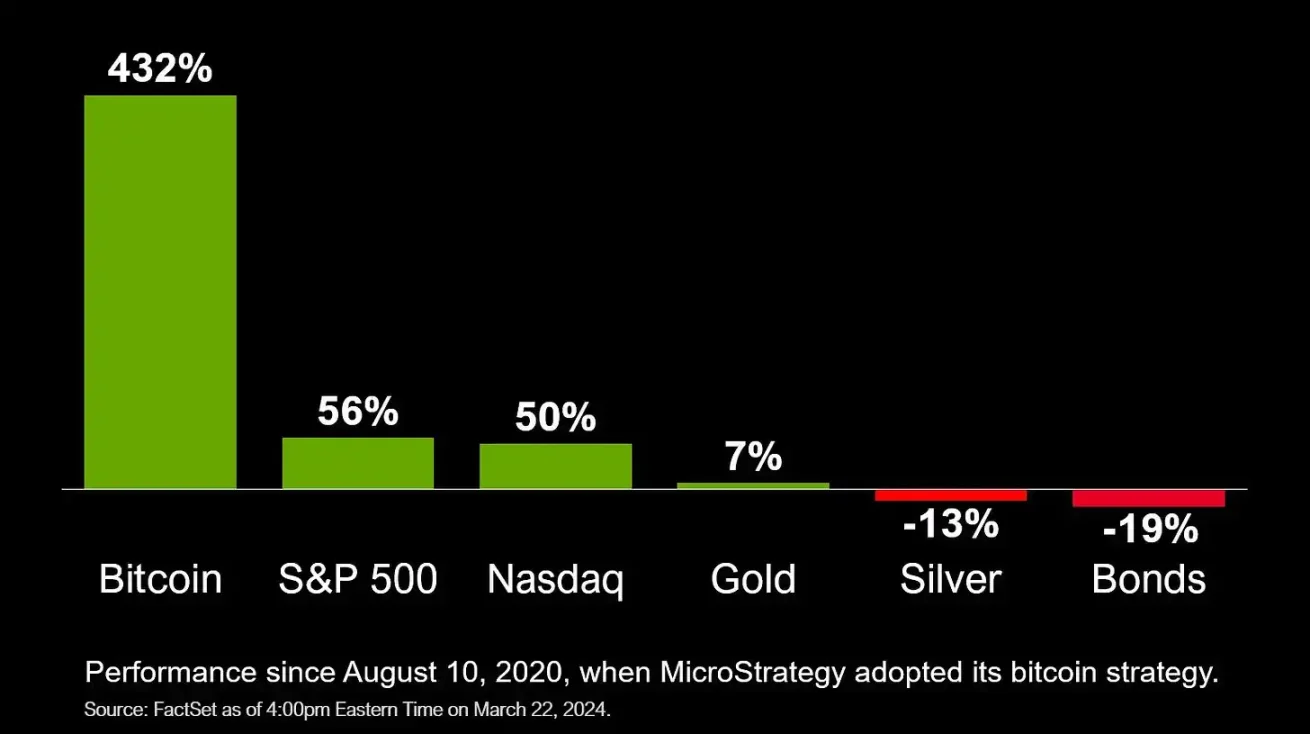
Source: Michael Saylor X
Bitcoin, as an emerging alternative asset, can effectively address these shortcomings. It not only has high return potential but can also diversify investment risks, providing companies with a completely new asset allocation choice. In the past five years, Bitcoin has significantly outperformed traditional assets like the S&P 500 index, gold, and bonds, even surpassing high-risk, high-return junk bonds. This indicates that Bitcoin is not just an alternative choice but an important tool in corporate financial strategy.
3.2. Improving Asset Management Efficiency
Another key reason Bitcoin attracts companies is its efficient asset management characteristics. Bitcoin supports 24/7 trading, providing companies with tremendous flexibility to adjust asset allocation at any time. Additionally, compared to traditional financial institutions, Bitcoin's liquidation process is more convenient, free from bank operating hours or complex procedural limitations.
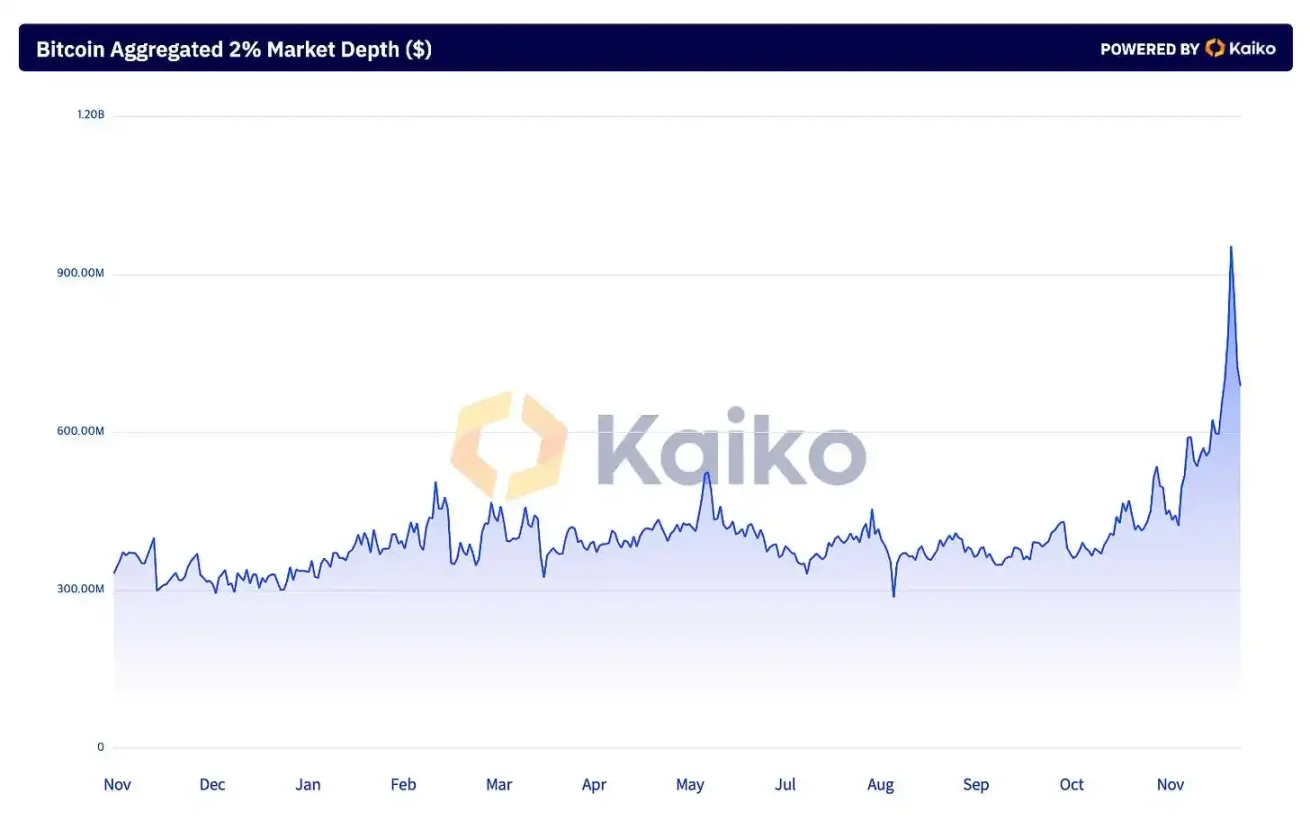
Source: Kaiko
Although companies still worry about potential price impacts when liquidating Bitcoin, this issue is gradually being mitigated as market depth increases. According to Kaiko data, Bitcoin's "2% market depth" (total buy and sell order amounts within 2% of the current market price) has steadily grown over the past year, with an average daily market depth of around $4 million. This indicates that the Bitcoin market's liquidity and stability are continuously improving, creating a more favorable environment for corporate Bitcoin usage.
3.3. Enhancing Corporate Value
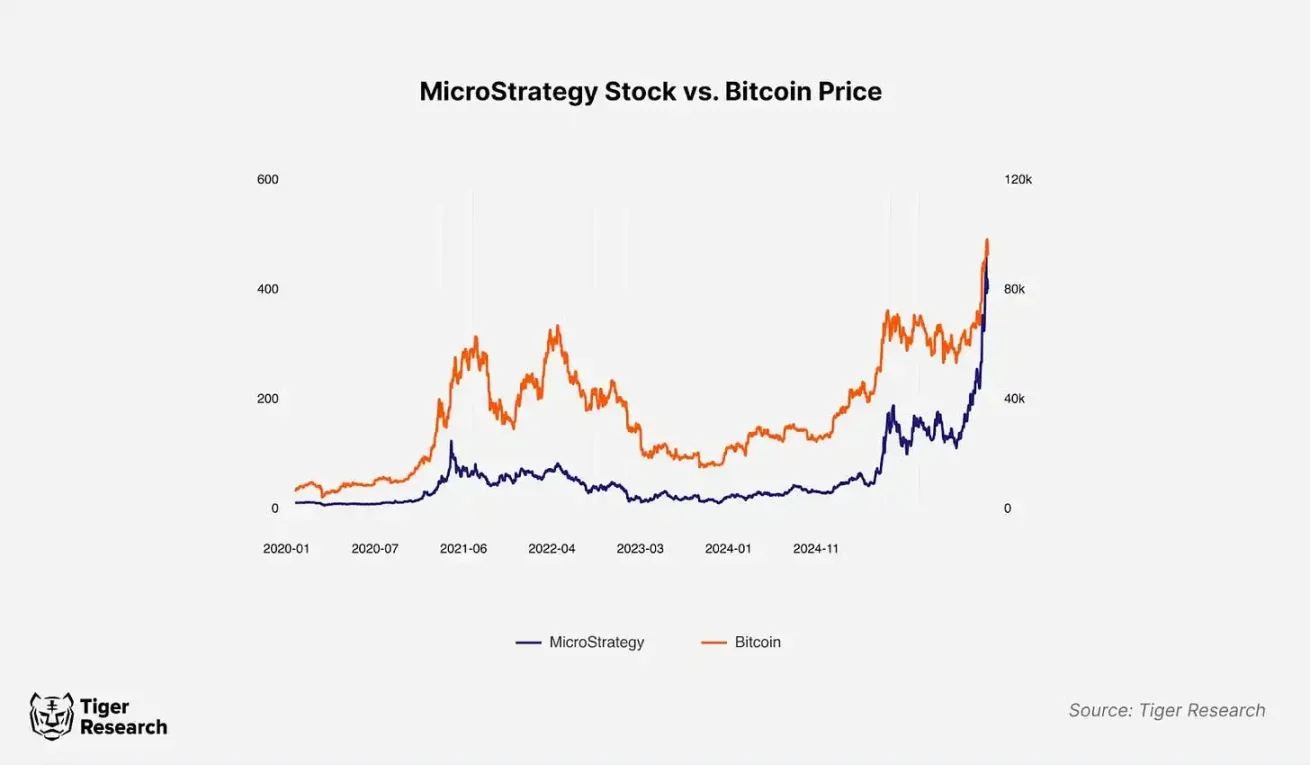
Holding Bitcoin is not just a financial choice; it can significantly enhance corporate value and stock price. For example, MicroStrategy and Metaplanet both experienced substantial stock price increases after announcing Bitcoin acquisitions. This strategy is not only an effective marketing tool in the digital asset industry but also provides companies with opportunities to seize growth in this field.
4. Bitcoin Investment by Asian Companies is Increasing
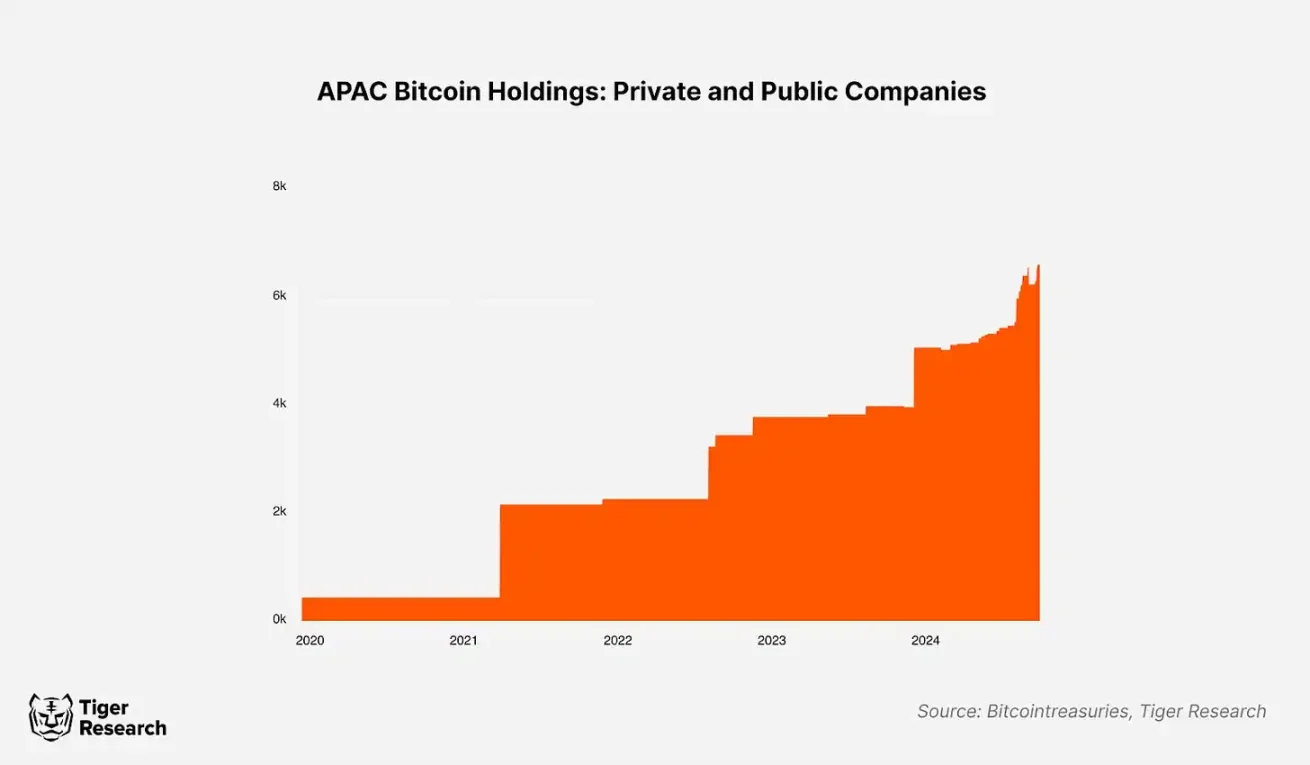
Although Asian companies are still in the early stages of Bitcoin investment, they are gradually increasing their holdings. For instance, Meitu from China, Metaplanet from Japan, and Brooker Group from Thailand have viewed Bitcoin as a strategic financial asset. Nexon has also made large-scale Bitcoin purchases. Metaplanet, in particular, has been especially active, acquiring 1,142 Bitcoins in the past six months.
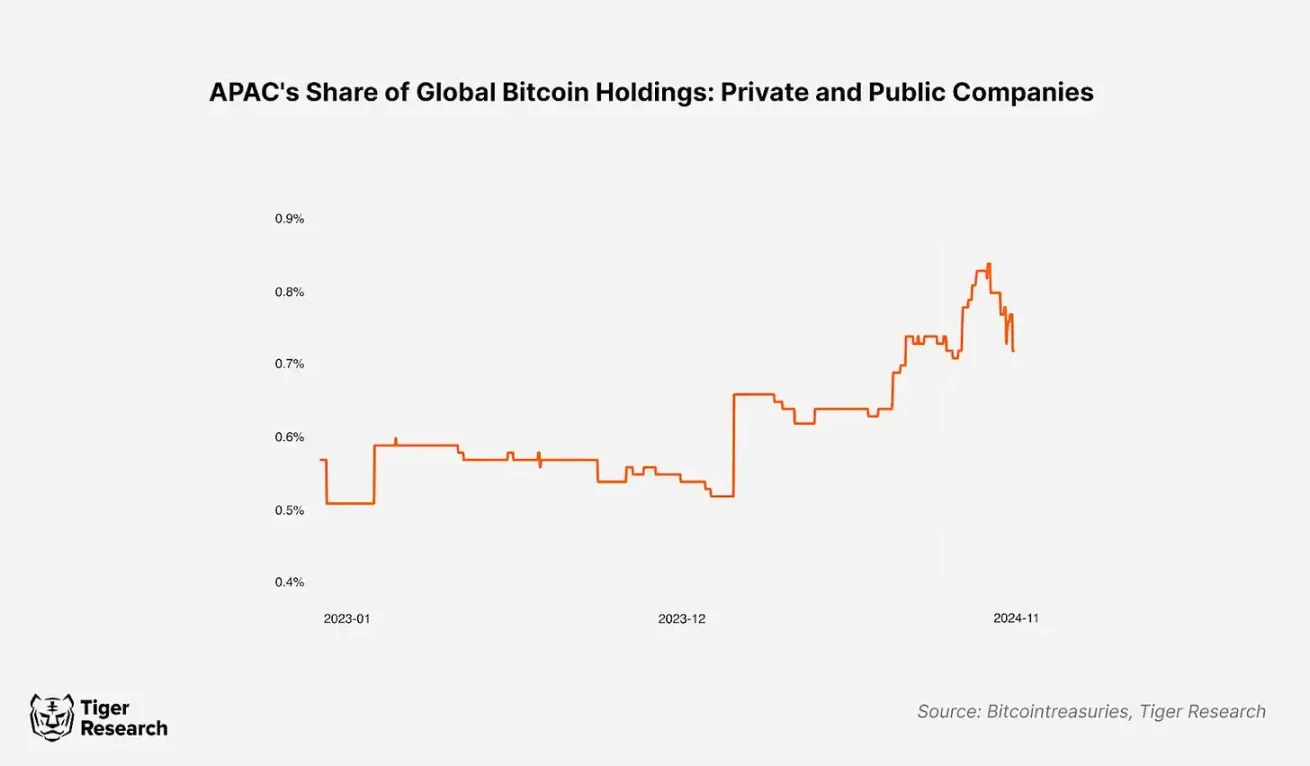
However, Asian companies' participation in the Bitcoin market remains low. According to statistics, Asian companies hold less than 1% of global Bitcoin, primarily due to regulatory restrictions in many countries. In South Korea, for example, companies cannot open accounts on cryptocurrency exchanges and face numerous obstacles in investing in overseas Bitcoin ETFs or launching funds related to cryptocurrency trading. Therefore, these companies can hardly invest in Bitcoin through official channels.
Despite the challenging regulatory environment, Asian companies' potential participation in the Bitcoin market remains promising. Some companies invest by establishing overseas subsidiaries to circumvent regulatory restrictions. Meanwhile, countries like Japan have made certain progress in relaxing related policies. Leading investment cases like Metaplanet are attracting more market attention. These positive changes may pave the way for broader Asian corporate participation in the Bitcoin market in the future.
5. Conclusion
Bitcoin investment is gradually becoming a popular financial strategy for companies. However, its price volatility remains a significant challenge, especially under the influence of external factors like international politics. The market crash in 2022 clearly exposed the potential risks of corporate Bitcoin holdings. Therefore, companies should remain cautious when investing in Bitcoin and reasonably combine it with safer assets to reduce overall risk.
Furthermore, for Bitcoin to develop further in corporate investment portfolios, a clear institutional framework needs to be established. Currently, there is a lack of clear guidance on crypto asset holding and accounting, often leaving companies confused in practical operations. Once these uncertainties are eliminated, Bitcoin may play a more important role in corporate asset diversification.







